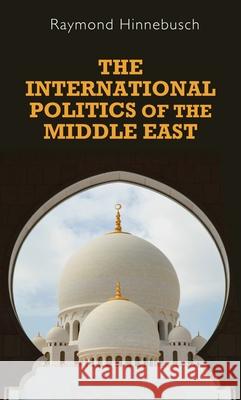The International Politics of the Middle East: Second Edition » książka
The International Politics of the Middle East: Second Edition
ISBN-13: 9780719099755 / Angielski / Twarda / 2015 / 368 str.
The International Politics of the Middle East: Second Edition
ISBN-13: 9780719099755 / Angielski / Twarda / 2015 / 368 str.
(netto: 392,80 VAT: 5%)
Najniższa cena z 30 dni: 407,40
ok. 30 dni roboczych.
Darmowa dostawa!
This book provides a comprehensive analysis of Middle East international politics in the light of international relations theory. It assesses the impact of international penetration, including the historic formation of the regional state system, the continued role of external great powers, and the incorporation of the region into the international capitalist market. The book also examines the region's distinctive dialectic between trans-state identities, Arabism and Islam, and the consolidation of a sovereign state system. The consequences of state formation for the ability of state elites to manage the external and domestic arenas in which they must operate are analysed, as is the impact of the foreign policy process in individual states on foreign policy outcomes, notably the interaction between elites and domestic constraints. The book goes on to examine the regional struggle for power, showing how the interaction of nationalism and revolution with the regional balance of power explains both the prevalence of conflict and the durability of the regional system. The last chapter assesses whether the post-bi-polar world has improved prospects for a more standard regional order. The book combines theoretically informed analysis with a wealth of empirical data and case studies.











